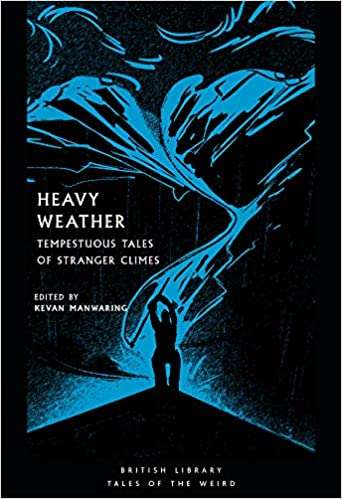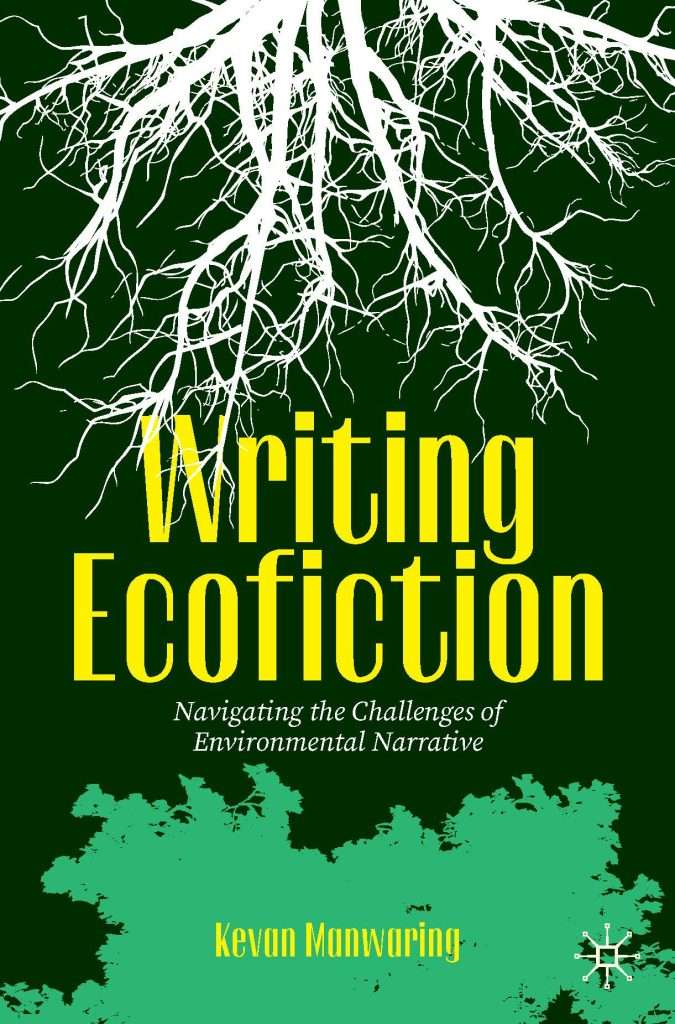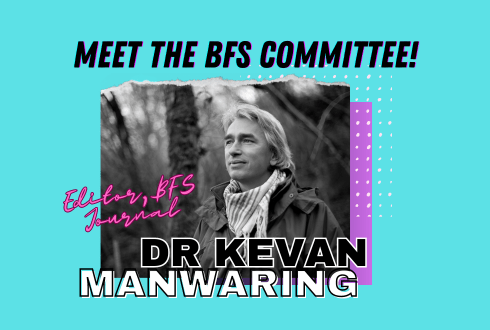We love to shine a light on the volunteers who help keep the British Fantasy Society running—this month, we meet the new editor of the BFS Journal, the fantasy and eco-fiction writer Dr Kevan Manwaring.
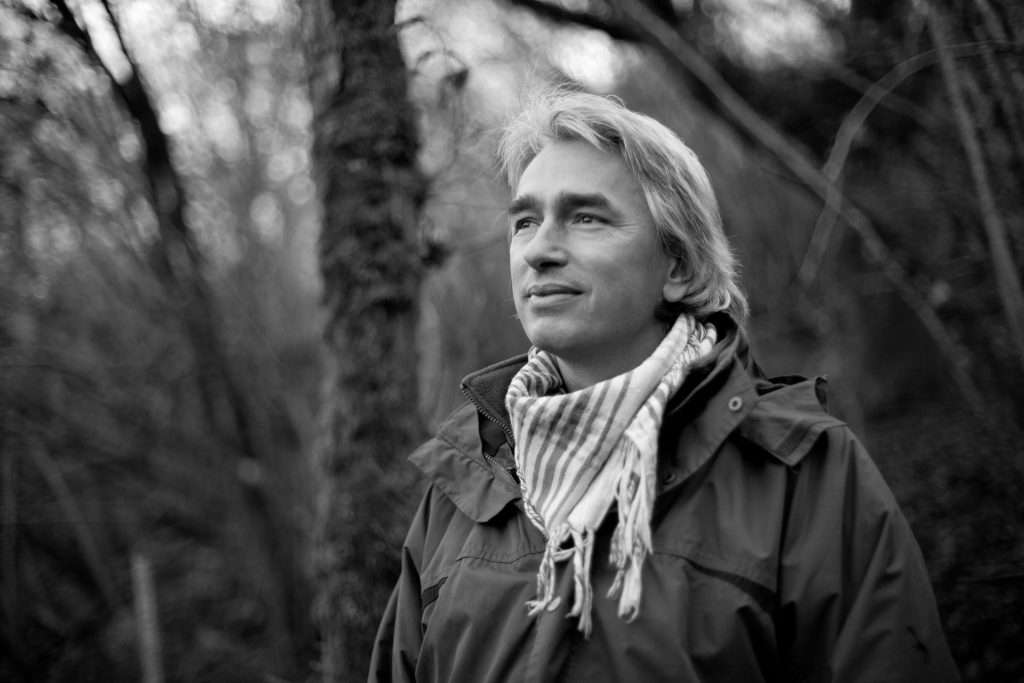
Name, including preferred pronouns
Dr Kevan Manwaring (he/him)
Which region are you based in?
Dorset, England
Your role on the BFS committee is:
Editor of the BFS Journal
If you write, which genre:Â
Fantasy, ecofiction, non-fiction
Are you drawn to any specific sub-genres?Â
- Literary Fantasy – that is, counterfactual narratives imagining the what ifs of famous lives.
- Liminal Fantasy – as defined by Farah Mendlesohn and exemplified by Graham Joyce and M. John Harrison.
- Thrutopian fiction – a term Rupert Read devised and Manda Scott has run with!
Your work with the BFS
Why did you join the BFS committee?
Forgive the play on words (sorry, a habit of mine) but Fantasy is made up of its fans – which even the most accomplished creators of Fantasy are, for to create is the ultimate act of appreciation. The BFS provides a valuable platform for this lively community, and I am happy to be part of it as a fanboy who somehow manages to make a living doing what he loves. Also, to help provide a platform for great critical writing and discourse about Fantasy in the BFS Journal.
Tell us more about your role: what do you do?
The Journal provides a platform for critical writing and reflections from members on all aspects of Fantasy. For some, this may be their first publication credit, so it provides an important ‘leg up’. It also can enrich appreciation of the genre through excellent features and articles. It provides a print and digital space for the wider Fantasy community.
Why should others get more involved with the BFS?
Because – in a world of imagination-deficit, Fantasy matters.
Because – be the scene you want to be part of.
Because – the geek shall inherit the Earth.
Your influences
Tell us about the book/film/thing that got you into SFFH: What was it? How old were you? What impact did it have on you?
Star Wars, as it was titled when it was first released in the UK in late ‘77/early ‘78 – I remember queueing up all day in January then as an excited 7-year-old to see this, and it blew me away!
2000AD, which I started collecting from Prog 1 in 1977, inspiring me to write and draw my own comics. Through it I got introduced to the work of Alan Moore, who happened to live in my old hometown, Northampton. I devoured everything he wrote, and got to chat with him a few times, eventually booking him for events as a speaker on the occult, and as the singer/frontman of ‘The Emperors of Icecream’.
Dr Who. I remember Pertwee regenerating into Baker, who became ‘my’ doctor ever afterwards, though I love Tennant too. I loved the novels, the comics, and the Whoniverse.
How does that early influence show up in your work now?
A tendency to be genre-fluid: I’ve written science fiction (winning a national SF manuscript competition with Black Box); ghost stories (another competition winner); Fantasy and Weird fiction (The Windsmith Elegy contains both); thrutopian fiction; and ‘literary’ fantasy (exploring the counterfactuals worlds of famous people).Â
Where do you draw your creative inspiration from?
Nature, in terms of long walks, wildcamping, visiting landmarks; mythology and folklore; the lives of writers; nonfiction articles on big ideas and cutting-edge research; my weird dreams.
Who do you look to as a genre hero? Why?
Graham Joyce. I just love his fiction, the sense of place in his writing, his shrewd portrayal of human nature, his blend of the magical and the mundane (what he called ‘Old Peculiar’).
Kevan is also a bardic storyteller; he’s pictured in action here.
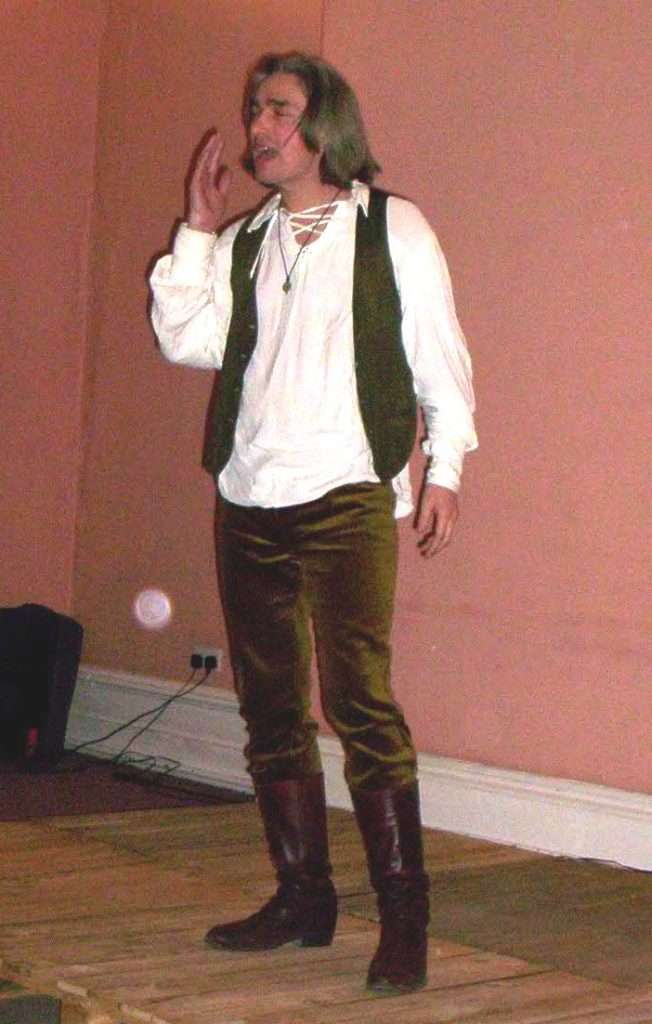
.Â
Your work
You’re stuck in an elevator for 60 seconds with that hero, and they want you to describe your work. Give us the pitch.
I prefer to call my particular blend of Fantasy ‘Mythic Reality’, as the worlds I describe seem very real to me – it’s like watching an epic movie in my head. I just describe what I see and hear. I love the writing of early Fantasists and sui generis writers like William Blake, George MacDonald, Fiona MacLeod, Arthur Machen, Algernon Blackwood, Hope Mirrlees, Mikhail Bulgakov, John Cowper Powys, M. John Harrison. I’m the bastard lovechild of them all.Â
What are you working on right now?
A non-fiction book on environmental aspects of Fantasy, but I have a novel series I want to write, a graphic novel, etc, etc.Â
Thinking about all of your stories/work you’ve done, which one sticks out most in your mind? Why?
My 5-volume Fantasy series, The Windsmith Elegy (The Long Woman, Windsmith, The Well Under the Sea, The Burning Path, This Fearful Tempest). I lived in those novels for ten years – a decade of my life, a lifetime of reading and experiences. They felt very real to me. I included all of my favourite things – people, places. It was a love letter to the English landscape (and to inner Britain, to Logres), and to early 20th Century Fantasy.Â
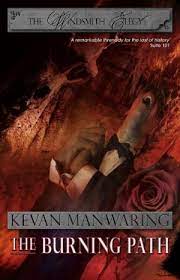
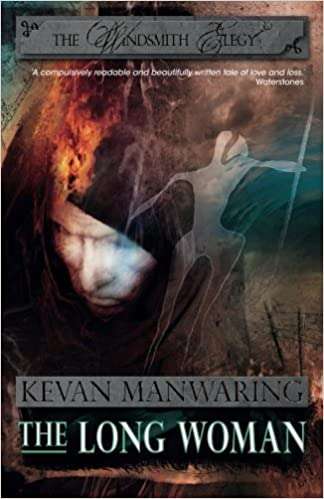
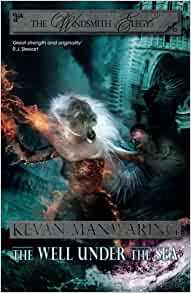

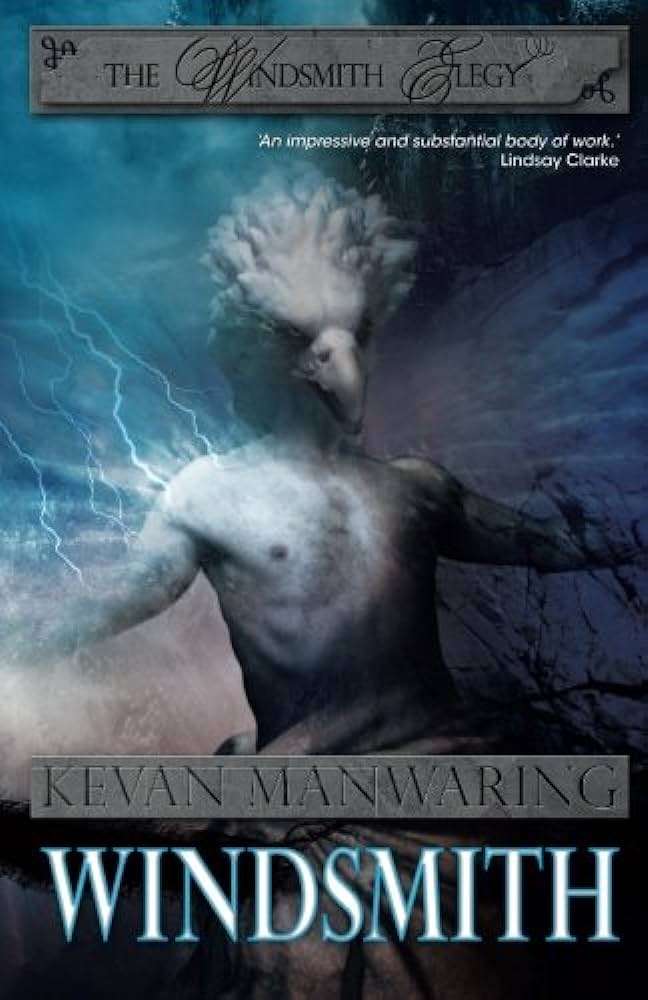
If you’re a creator, where and when do you create?
I’m always making notes – written or audio – when I’m out and about, but I mainly write at home. I do my best writing in the morning, but can keep going all day if need be. I don’t believe in ‘writer’s block’ – you just need to show up to the page and do the work. I create a daily target and a deadline, and I stick to it. Due to having a full-time academic job I have make the most of precious windows of opportunity – pockets and hollows that occur in my schedule, and dedicated writing retreats. I love escaping somewhere peaceful and getting ‘into the zone’ for a stretch of time. It feels luxurious. But I can nibble away at it otherwise, with often several projects on the go at the same time.Â
What’s the best advice you’ve received about creativity?
William Blake’s aphorism always sticks in my mind:
I must create a system, or be enslaved by another man’s.
I will not reason and compare: my business is to create.
Blake created his own cosmology, and his own printing method. Don’t be bound by anyone or anything. Dream big, and find a way to make it happen.
What’s your writing soundtrack?
Silence. Though occasionally I would listen to movie soundtracks when I’m working on a particular scene in a novel, for example a battle.Â
The quickfire round
Sci-fi, fantasy or horror?
Fantasy
Quiet or loud?
Quiet
Dark or light?
Goldendark
Strict lines or genre blend?
Genre-fluid
Awards or bestseller?
Awards
Fiction or non-fiction?
Fiction
Poetry or prose?
Prose
Plotter or pantser?
Plotter
Reading or listening?
Reading
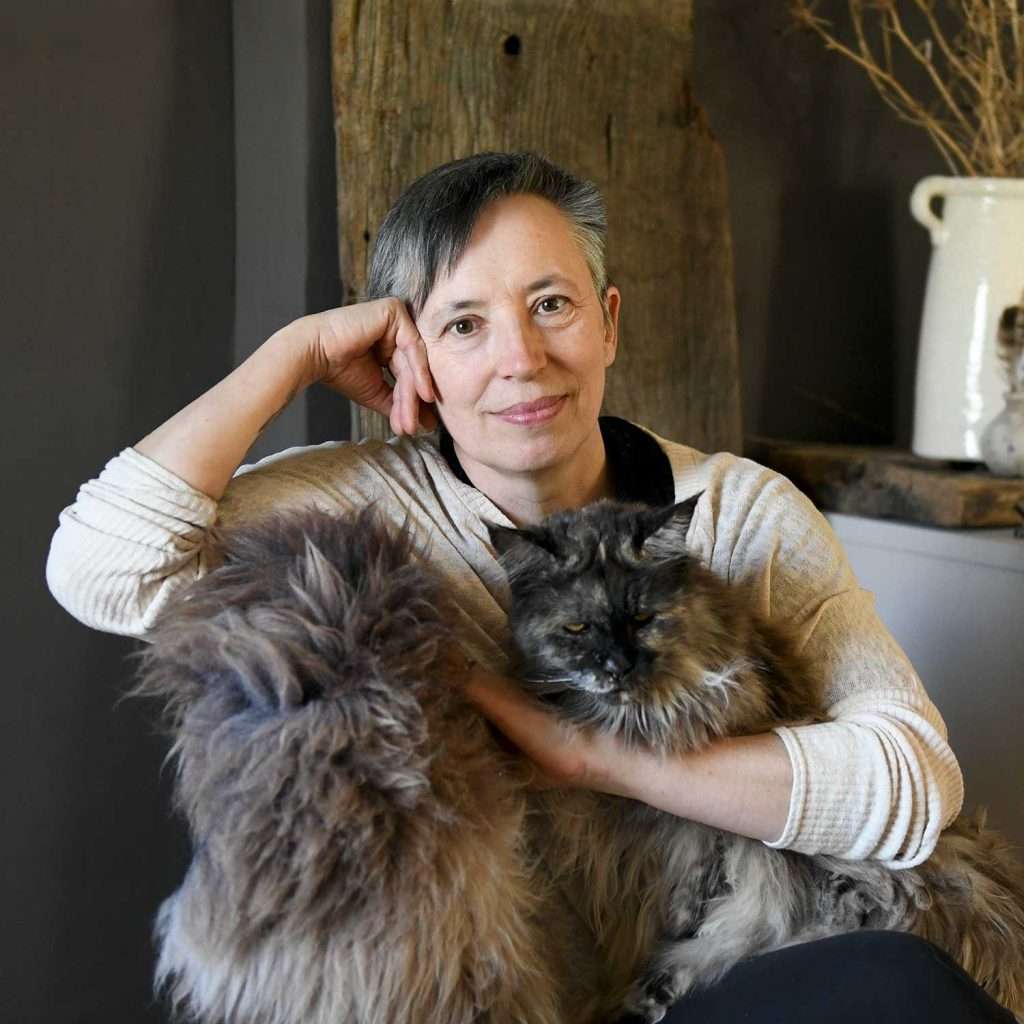
Notebook or computer?
Notebook
Favourite SFFH book of all time?
Mythago Wood, by Robert HoldstockÂ
Last book you read?
Any Human Power, by Manda Scott (author pictured; source)
Any SFFH author on auto-buy?
No
Favourite podcast?
Arts and Ideas podcast (BBC Radio 3 Free Thinking)
The home stretch
What’s the best thing about being a SFFH writer?
The freedom. As a writer when you turn up at the page or screen you experience a rare and precious freedom. It is one of the only places in the world where you can truly experience that – the tabula rasa of the blank page or screen is like a virgin continent or undiscovered planet. You are its first explorer. Each page written feels like a revelation of what is unknown until you arrive there, but also sometimes feels like an excavation of something long buried, waiting for you to expose it to the light.
Time to plug your stuff! Where can we find you and your work? What have you got coming up? Consider this your advertising space.
My latest book is Writing Ecofiction: navigating the challenges of environmental narrative, from Routledge (available to pre-order through all the usual outlets, but I would recommend Hive to support your local bookseller. Out October 2024).
Heavy Weather: tempestuous tales of stranger climes, published by The British Library, is available here
Books available direct from Awen Publications:
- The Long Woman – The Windsmith Elegy Vol. 1
- Windsmith – The Windsmith Elegy Vol. 2
- The Well Under the Sea – The Windsmith Elegy Vol. 3
- Silver Branch: Bardic Poems & Letters to a Young Bard
- The Immanent Moment
I have my big, fat transapocalyptic fantasy being looked at by an American agent, and non-fiction projects with a UK-based agent, but my current book contract is for a non-fiction title from Routledge on environmental aspects of Fantasy – combining my two main research interests. Watch this space!

